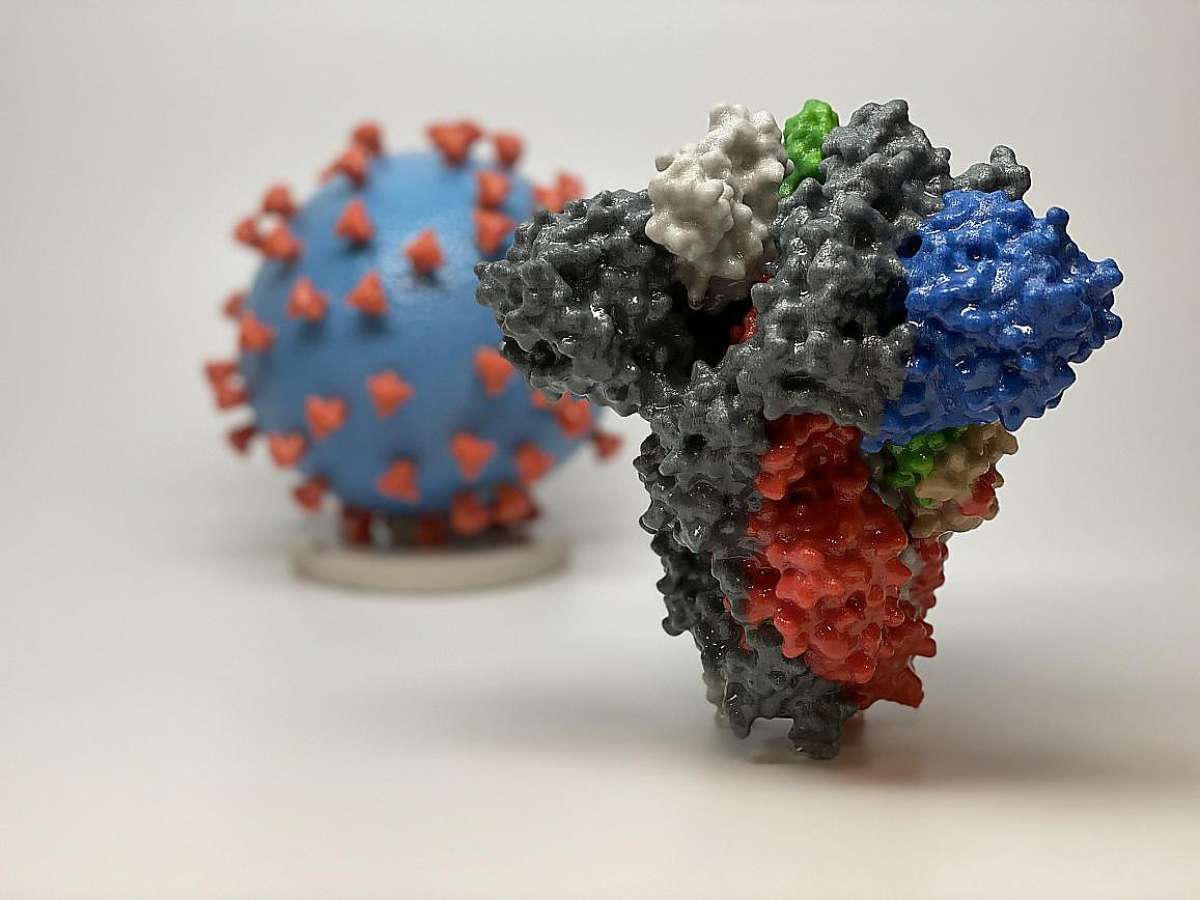UCSF doctor weighs in on new COVID variant identified in Texas

(FILES) In this file photo obtained on March 16, 2020 courtesy of The National Institutes of Health(NIH)/NIAD-RML, shows a 3D print of a spike protein of SARS-CoV-2also known as 2019-nCoV, the virus that causes COVID-19in front of a 3D print of a SARS-CoV-2 virus particle.
Handout/National Institutes of Health/AFP via Getty ImagesResearchers at Texas A&M University identified a variant of the COVID-19 virus they say has genetic markers suggesting potential resistance to antibodies, according to a statement from the university.
“We do not at present know the full significance of this variant, but it has a combination of mutations similar to other internationally notifiable variants of concern,” Ben Neuman, a chief virologists at the university’s Global Health Research Complex, said. “This variant combines genetic markers separately associated with rapid spread, severe disease and high resistance to neutralizing antibodies.”
The so-called BV-1 is related to the B.1.1.7 variant that caused a surge in the United Kingdom, the university said.
Dr. Monica Gandhi, a professor of medicine at UCSF, said she’s not concerned about this variant yet, as she has not seen the actual peer-reviewed data that it is resistant to antibodies.
“There were reports initially that B.1.351 [the variant first identified in South Africa], and other variants were resistant to antibodies but those were reversed by other reports and the 6 month data on the Pfizer vaccine roll-out which showed 100% efficacy against severe disease, even with the B.1.352 variant,” Gandhi explained in an email. “Moreover, variants are covered by vaccines, specifically when considering T cell responses generated by the vaccines that are able to neutralize different variants.”
Texas A&M researchers identified a single case of the variant at the university’s Global Health Research Complex in a saliva sample taken from a Texas A&M student in early March.
The variant was named for the “Brazos Valley,” the seven-county region where Texas A&M is located.
As the United States continues to issue vaccines, worrying variants are spreading and triggering surges in some states. California has thus far avoided a significant uptick in cases. The seven-day positivity rate in the state was 1.5% as of Wednesday, among the lowest in the country.

